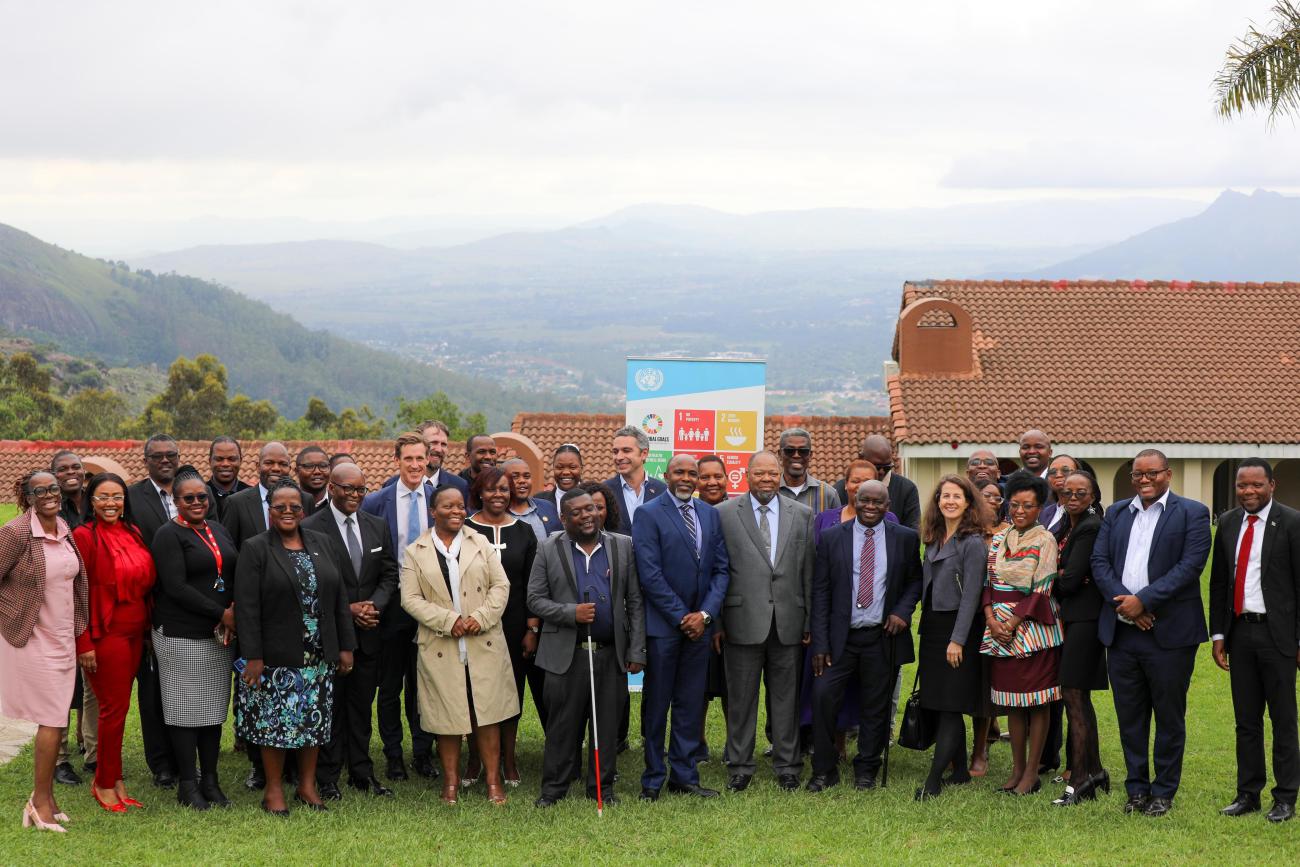Eswatini Reviews SDG Progress at UNSDCF Evaluation Validation Workshop

A collaborative review of development progress, the UNSDCF Evaluation Validation Workshop united over 50 key stakeholders to refine the nation’s SDG journey
The validation workshop for the United Nations Sustainable Development Cooperation Framework (UNSDCF) Evaluation Report brought together over 50 key stakeholders, including members of the Joint National Steering Committee (JNSC), to assess Eswatini’s development journey under the UNSDCF 2021-2025.
The workshop, chaired by both the Honourable Minister for Economic Planning and Development, Dr. Thambo Gina, and the UN Resident Coordinator George Wachira, emphasized partnership and strategic reflection as Eswatini advances toward achieving its Sustainable Development Goals (SDGs) by 2030.
As Evaluation Manager, the UNDP Resident Representative, Henrik Franklin, introduced the UNSDCF evaluation and reaffirmed the UN’s shared commitment to supporting Eswatini’s national development priorities, emphasizing the value of lessons learned in guiding future efforts.
As one of the first African countries to implement the UNSDCF 2021-2025, Eswatini served as a continental pacesetter, overcoming significant challenges such as the COVID-19 pandemic, Tropical Cyclone Eloise, and civil unrest.
Reflecting on this journey, Dr. Gina praised the collaborative spirit that underpinned the framework's implementation, stating, “Today’s validation marks a pivotal step, reflecting our unwavering dedication to a just, prosperous, and resilient Eswatini. Your continued partnership has been essential in steering us toward shared development goals despite various challenges.”
UN Resident Coordinator George Wachira highlighted Eswatini’s pioneering role as one of the first African nations to also evaluate the UNSDCF, stating: “A key learning point for us would be to hear from the evaluation findings, and from yourselves as the JNSC and partners, whether the design and execution of the CF had enough inbuilt flexibility to allow for effective context responsiveness.”
He also expressed his gratitude to the many key actors in the room, stating: “Thank you, Minister Gina and your entire team, as well as other ministries that we work with. Thank you to all the Member States, some present here, who provide funding to the UN globally and, even more specifically, those that provide funding to UN Eswatini. Thank you to our civil society partners for supporting the SDG agenda through partnership. Thank you to the private sector, both for creating opportunities and prosperity, and for those that have also directly supported the work of the UN. Many thanks, too, to the research and academic institutions for your partnership.”
The workshop’s open dialogue then allowed stakeholders to share candid reflections on the UNSDCF’s progress. Bongani Makama, representing the Federation of Disabled Eswatini, raised a critical point about inclusivity: “While the UNSDCF is a valuable tool for national progress, we need clearer guidance on incorporating the needs of people with disabilities.” His remarks reinforced the need to ensure the framework addresses all population groups comprehensively.
Nombuso Dlamini from Economic Planning and Development emphasized the significance of robust data, noting that “data’s strength lies in showcasing our achievements and identifying areas needing reinforcement.” This sentiment was echoed by Victor Mahlalela, CEO of the National Disaster Management Agency, who advocated for revisiting the scope of projects under the UNSDCF to encompass broader developmental areas that may have initially been excluded.
E. Nathi Dlamini, CEO of Business Eswatini, highlighted the mismatch between youth skills and job market demands, observing, “We have a highly skilled youth population that remains unemployed due to a skills gap within the private sector.”
The feedback workshop provided a valuable platform for refining the UNSDCF and underscored two key priorities: fostering collaborative partnerships beyond traditional donor roles and accelerating progress through innovative, adaptable solutions.
Dr. Gina expressed his optimism for the country’s developmental future, underscoring that these collective efforts would lay a strong foundation for achieving the SDGs. As the workshop wrapped up, participants reaffirmed their dedication to strengthening Eswatini’s UNSDCF framework, paving the way for a more prosperous, resilient Eswatini.


















